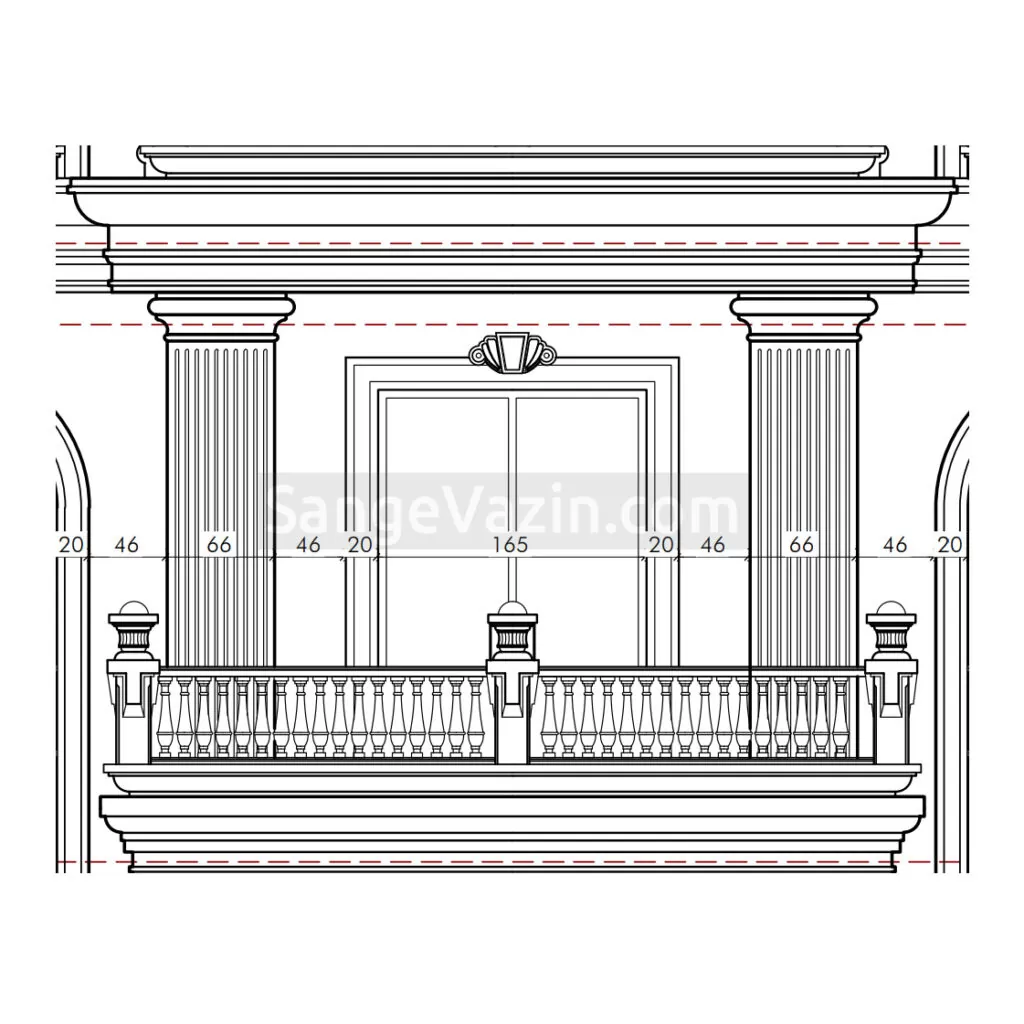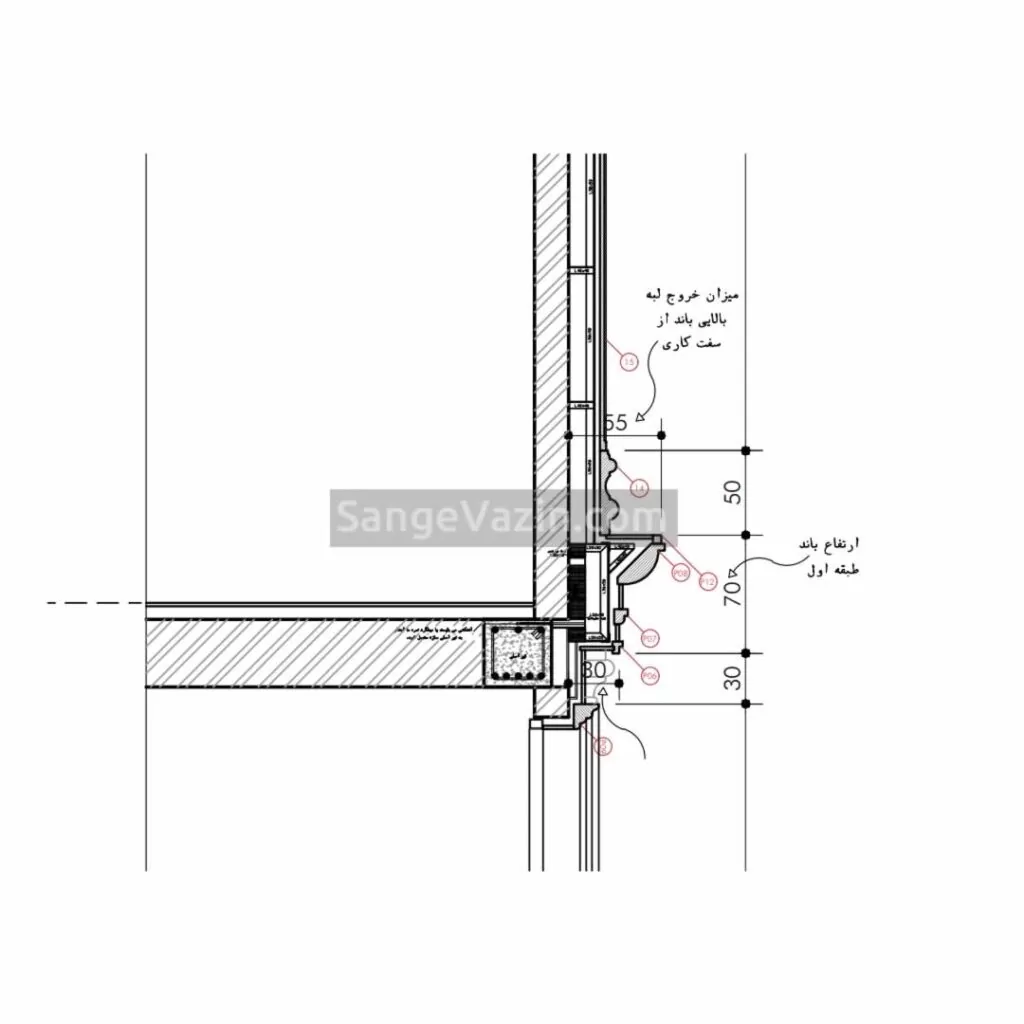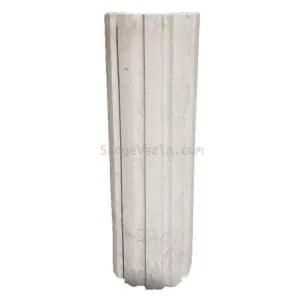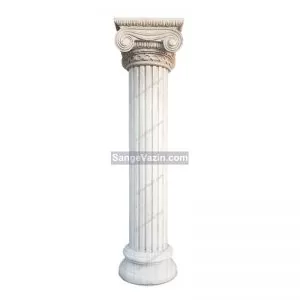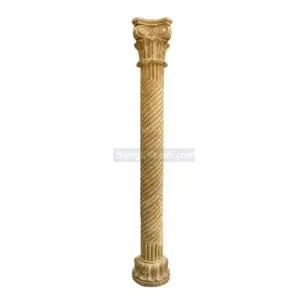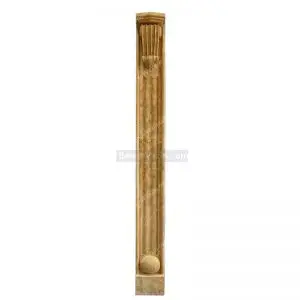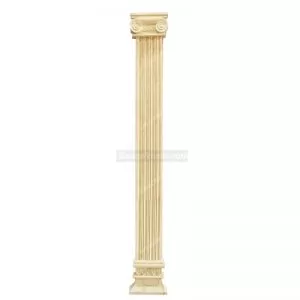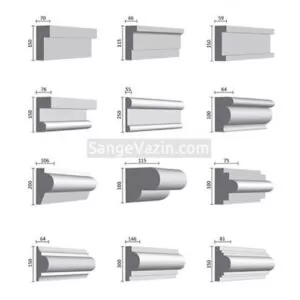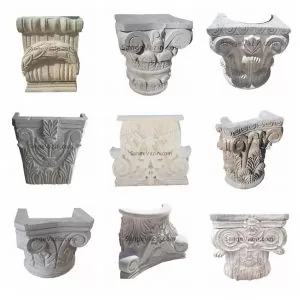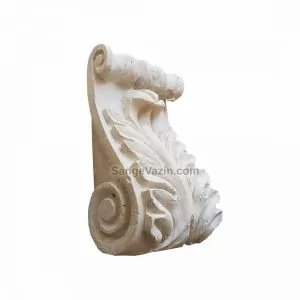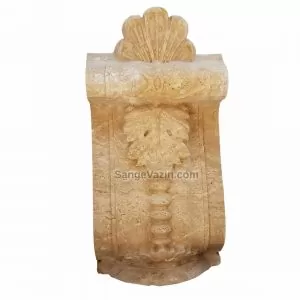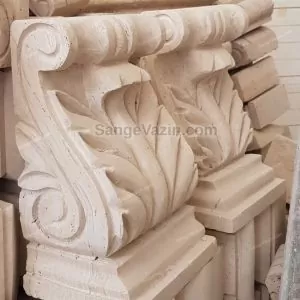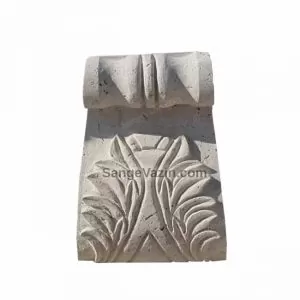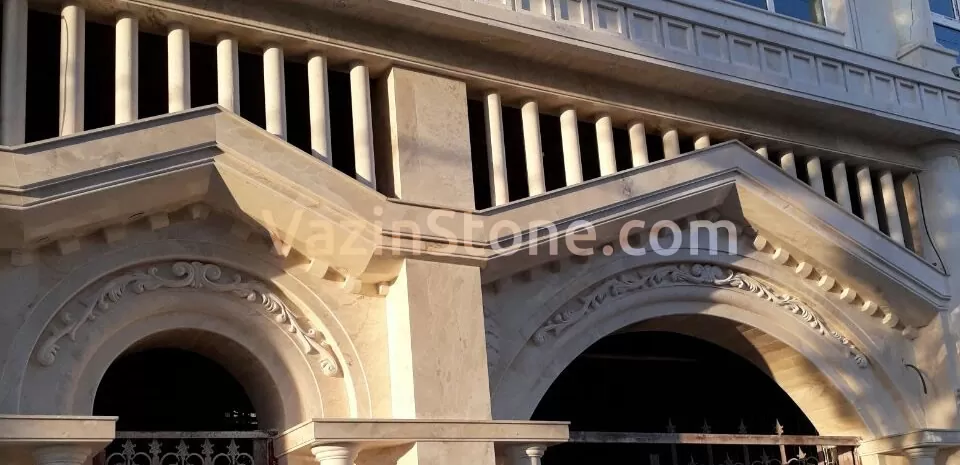Stonemasonry
Stonemasonry is a type of architecture that includes the capital pilaster, pedestal column, flowers and symbols, baseboard, etc., which are placed on the facade. There are two varieties of this stonemasonry: natural (stone and artificial (cement and polymer). The description is at the bottom of the page, where you can read more about the stonemasonry.
Showing all 4 results
Stonemasonry is the creation of important building materials or structures out of stone. Stonemasons use natural stones, such as travertine and marble, to make cornices, corbels, column pedestals, etc.
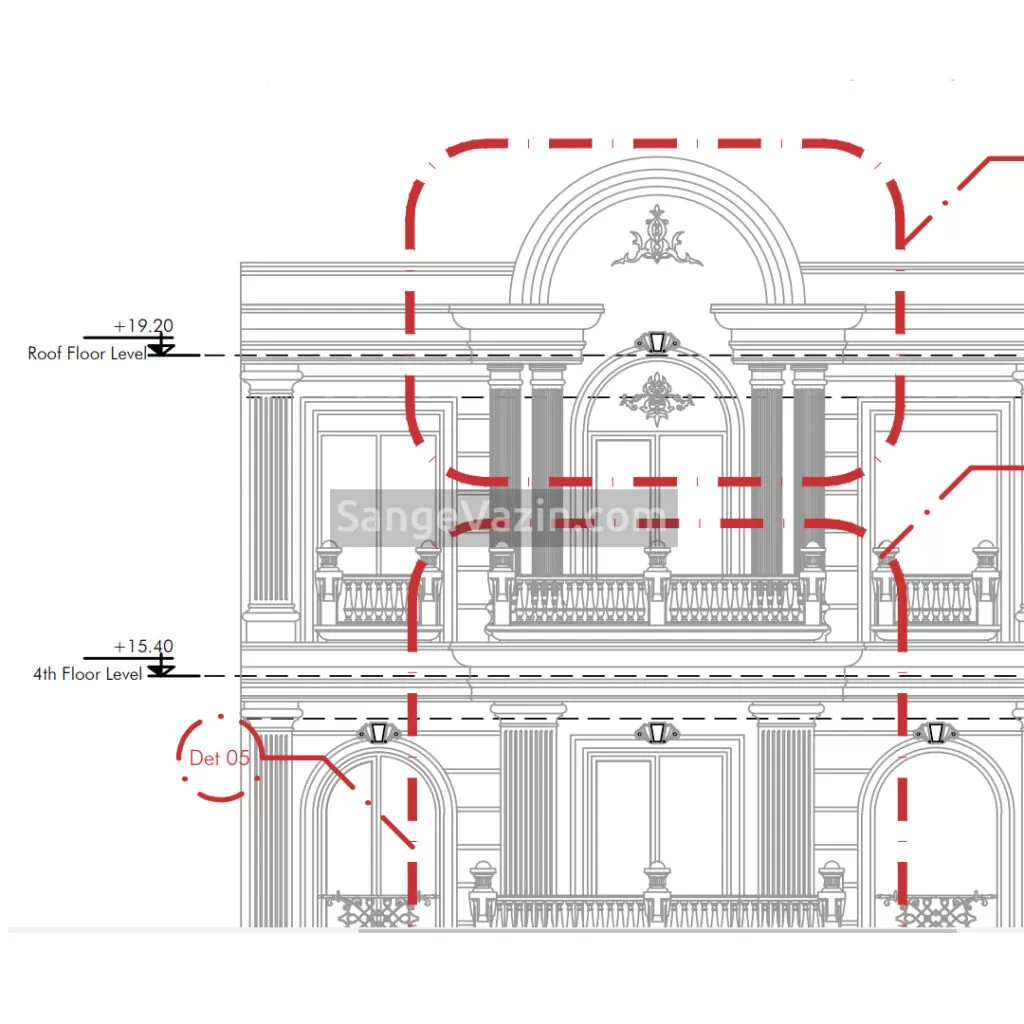
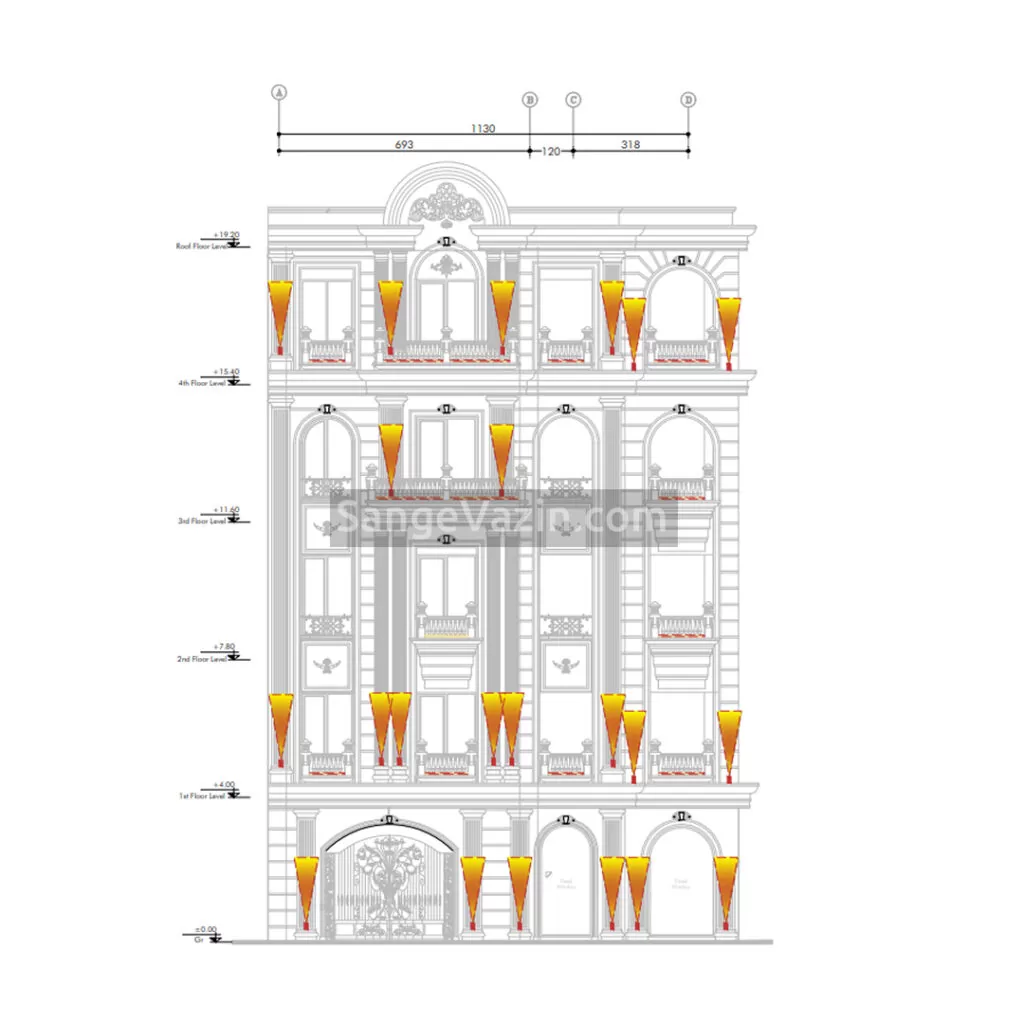
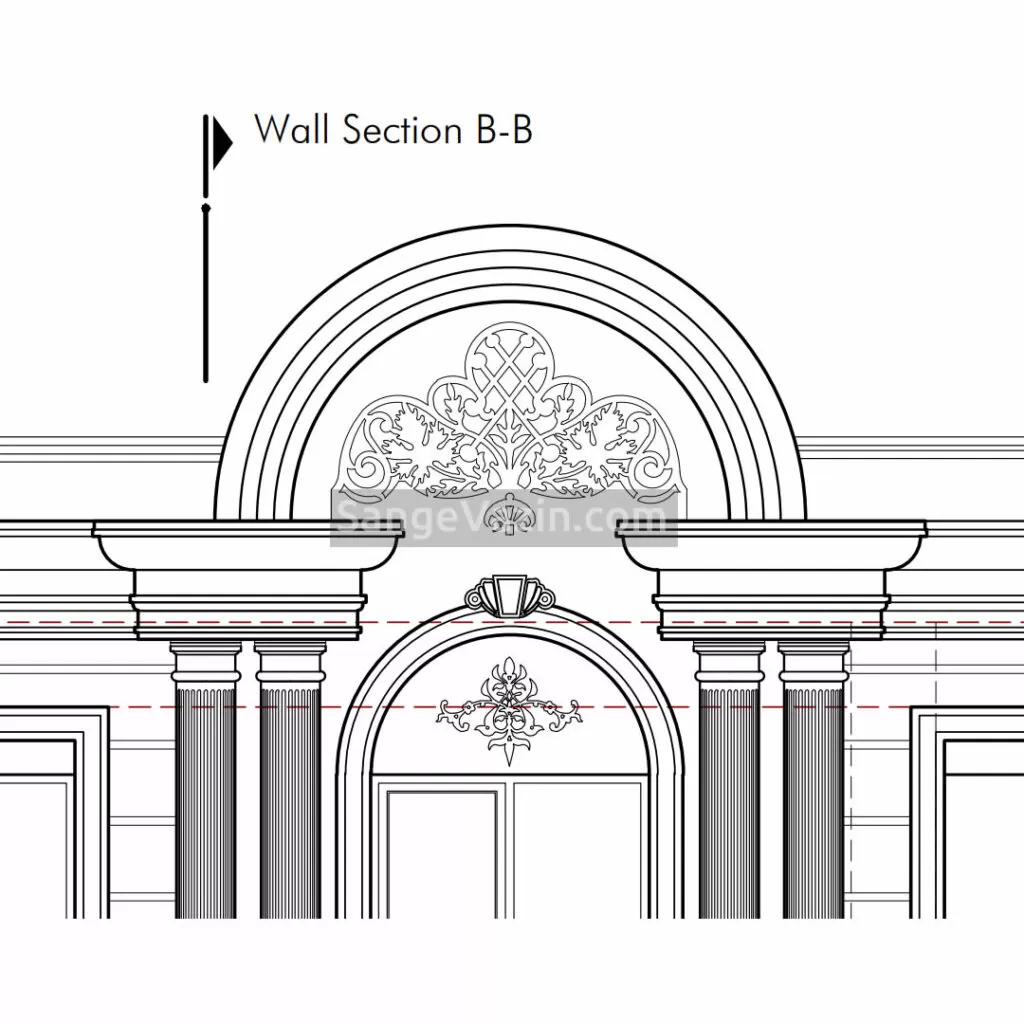
Facade stonemasonry can be in different materials. In the past, cement was used, but today, with the advancement of technology help of precise CNC and lathe machines, stone is used. The advantage of stone is that it takes less effort to install than cement and is more durable. Also, it is creating a more integrated and beautiful structure.
Generally, all elements and parts on Roman facades, such as the pedestal column, stone flowers, stone symbols, cornices, and stone capital pilasters, are known as Roman stonemasonry crafts.
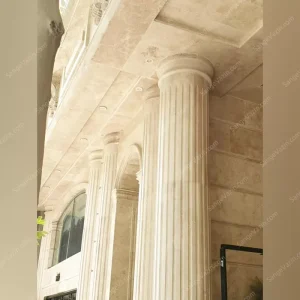
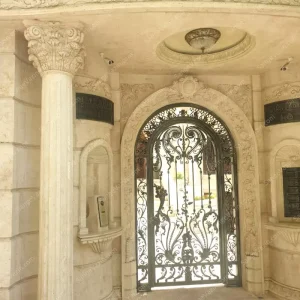
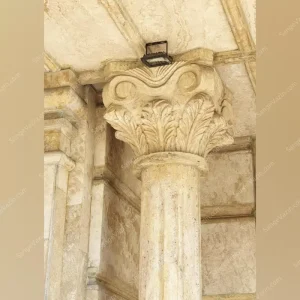
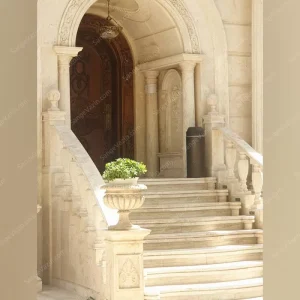
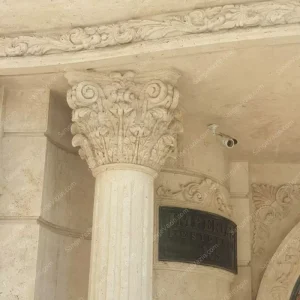
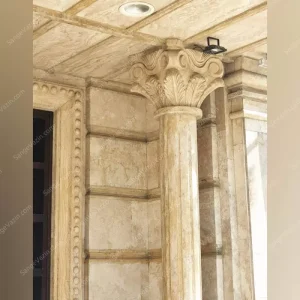
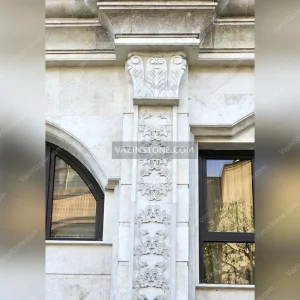
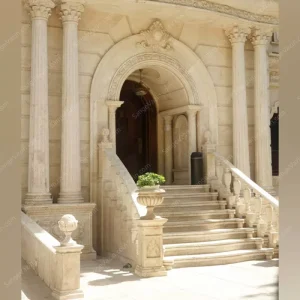
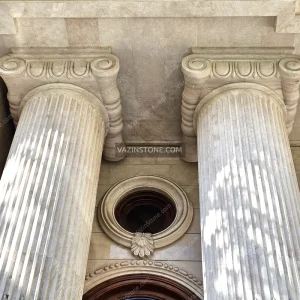
Classification of stonemasonry
Stonemasonry craft can be divided into two categories:
- linear stonemasonry for Cornices
- Inlaid stones such as flower and bush designs and symbols. These stone artifacts are used mainly in the facades of buildings, especially Roman facades, which you can see in these photos.
- Fluted column, stone column top, stone pillar capital
Most of these items are used on building facades, particularly the Roman facade that is shown in the gallery below.
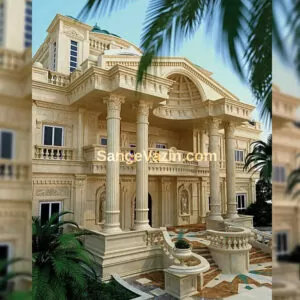
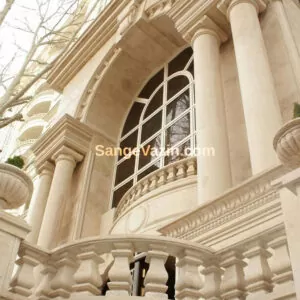
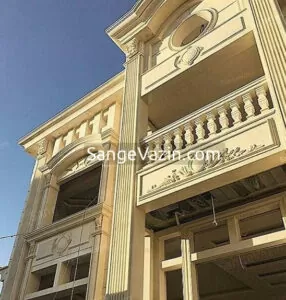
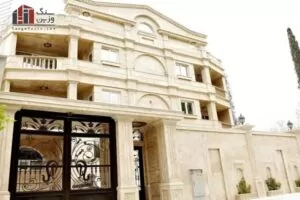
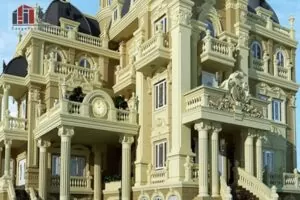
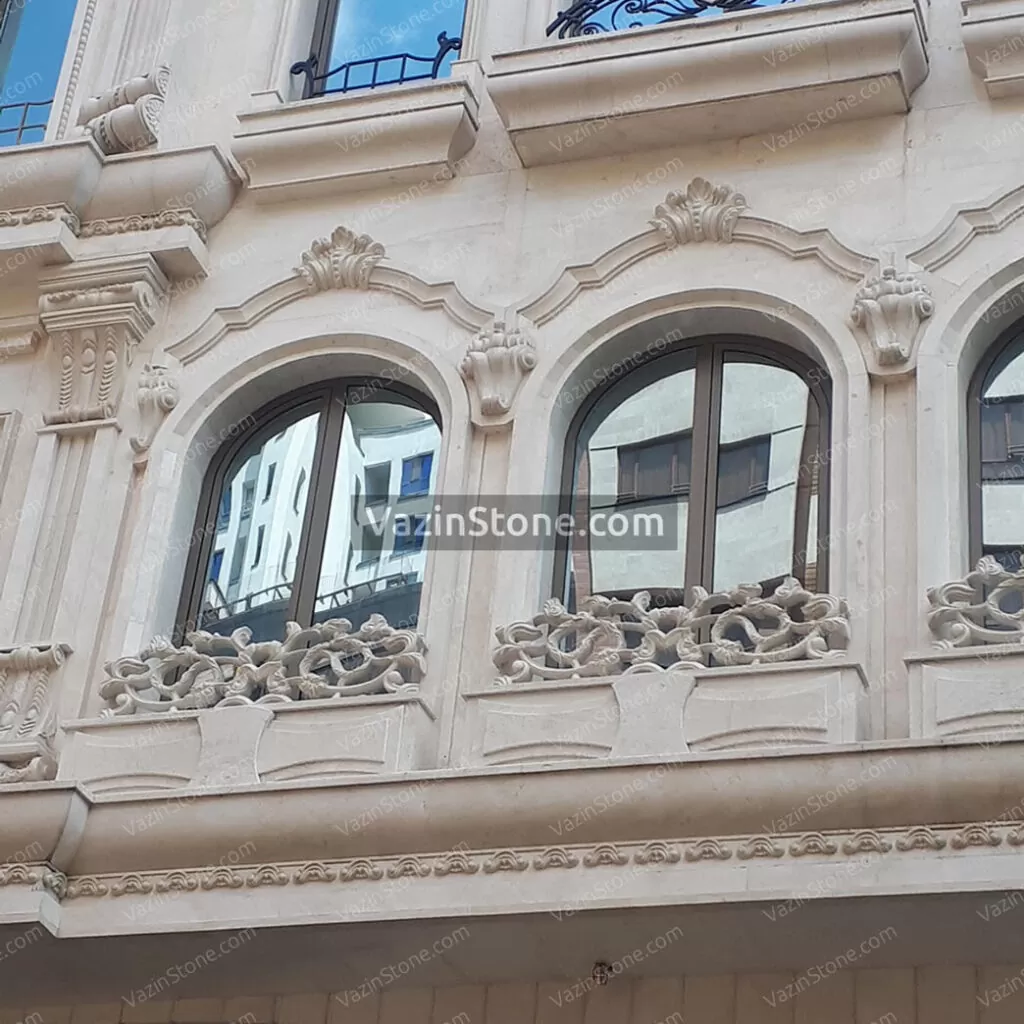
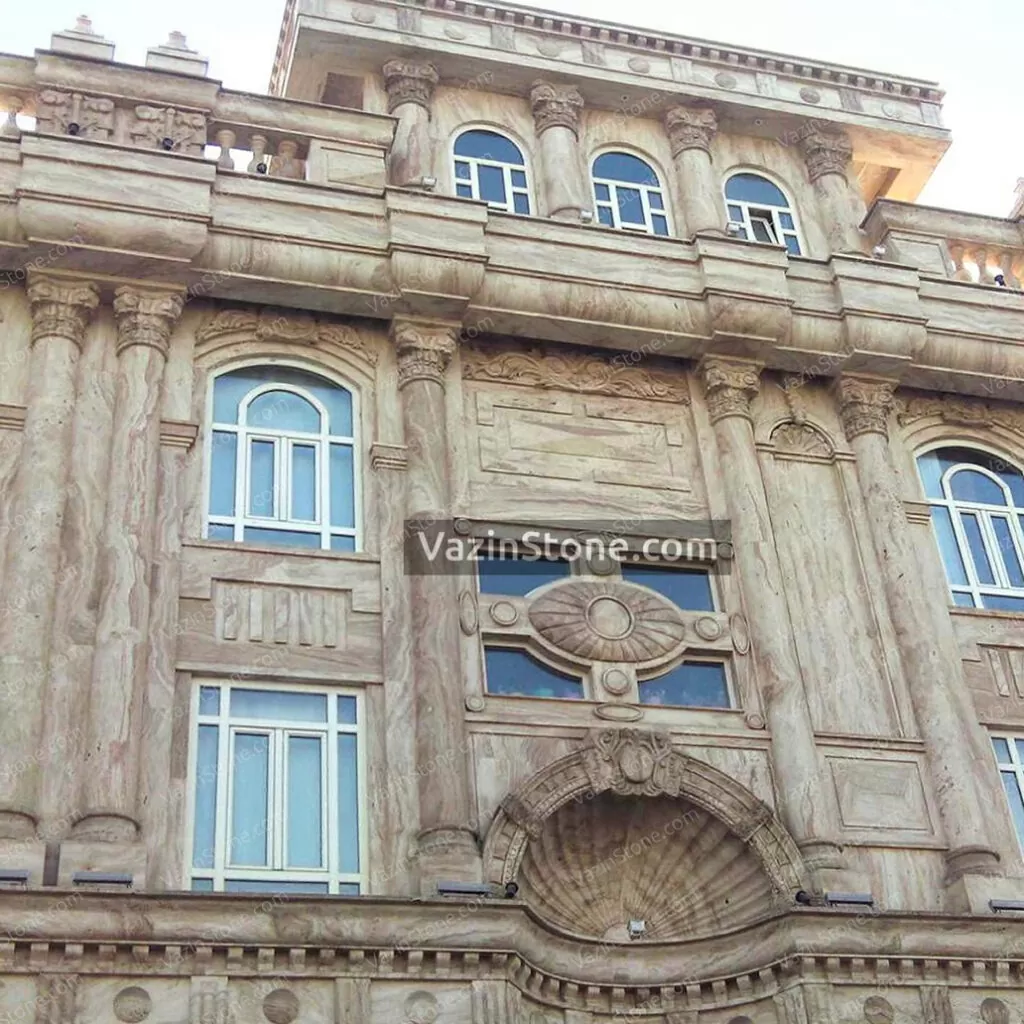
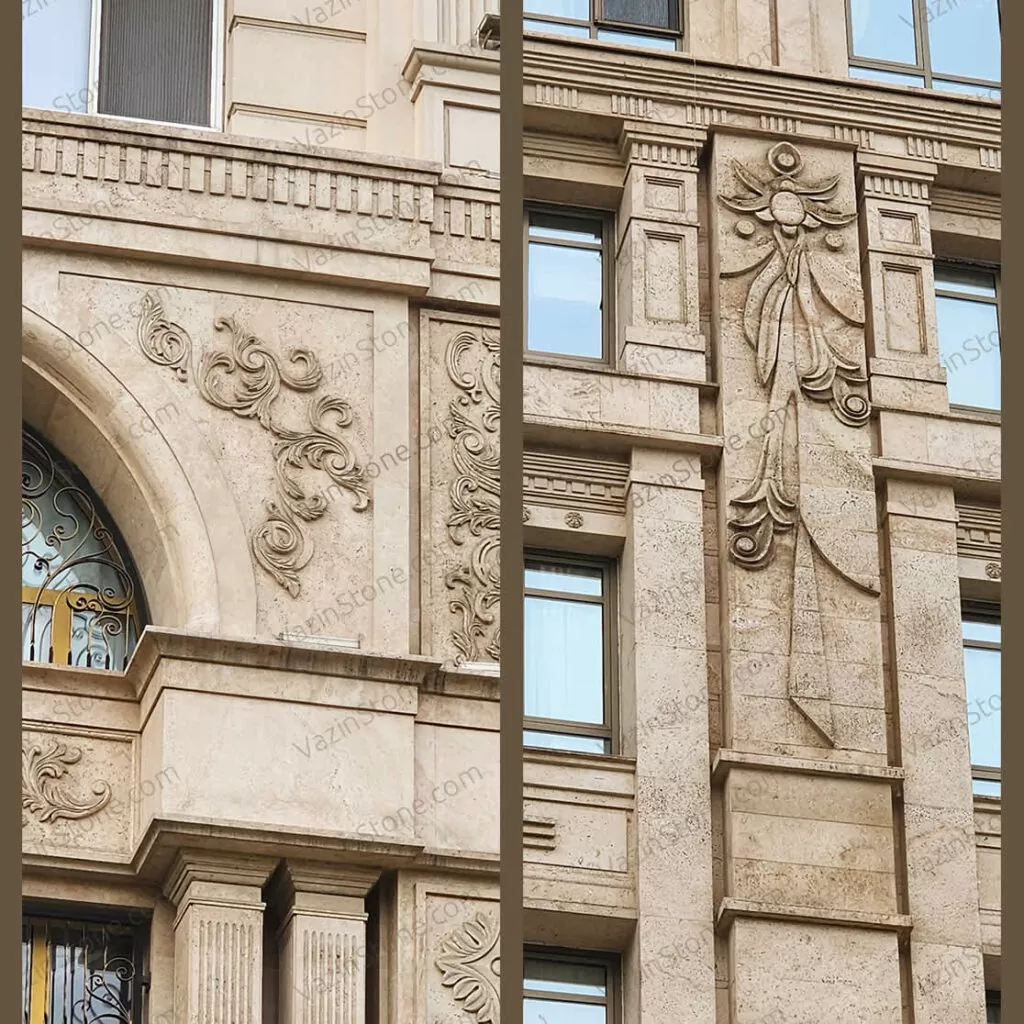
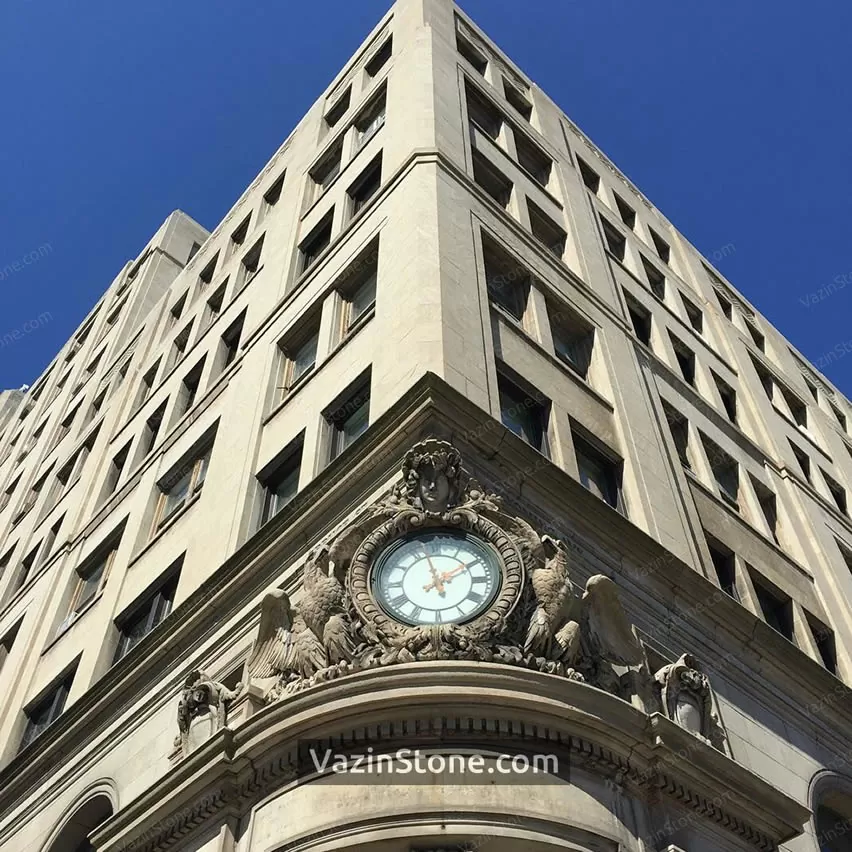
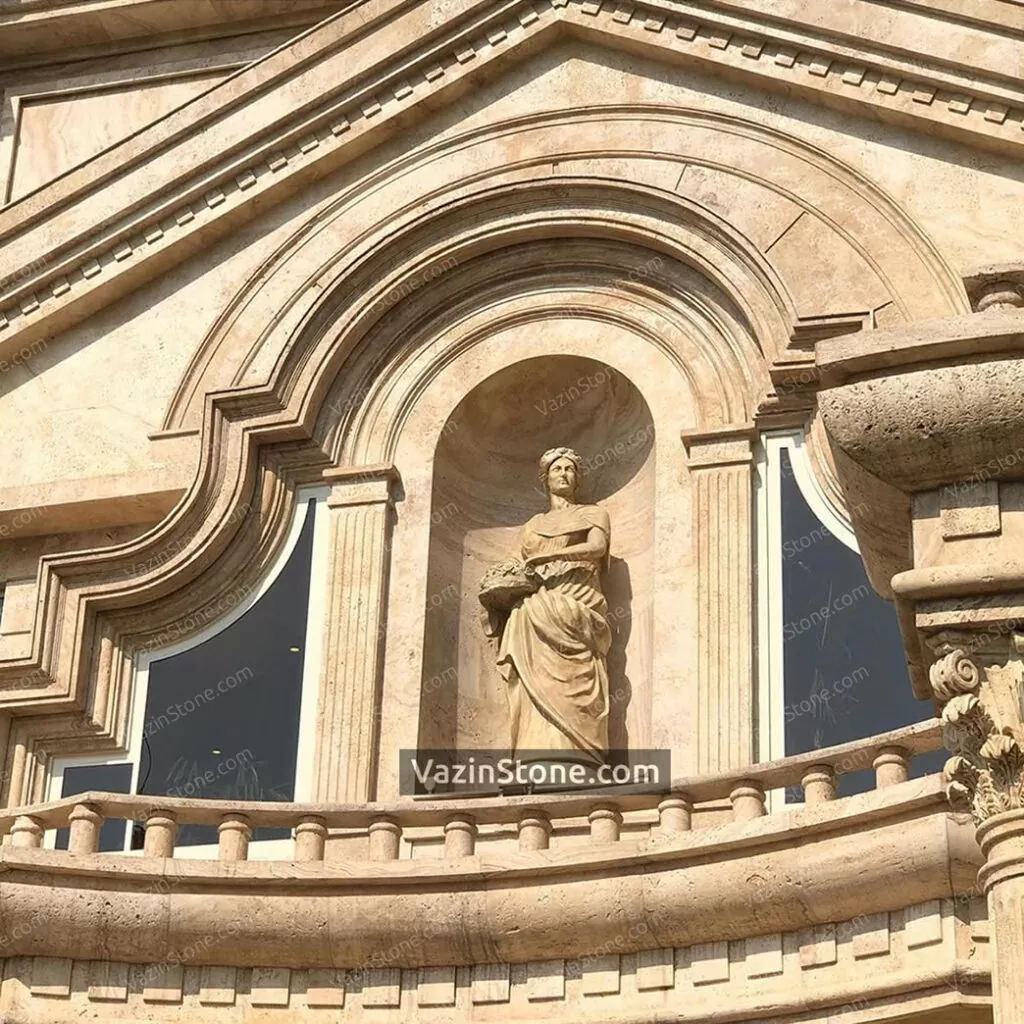
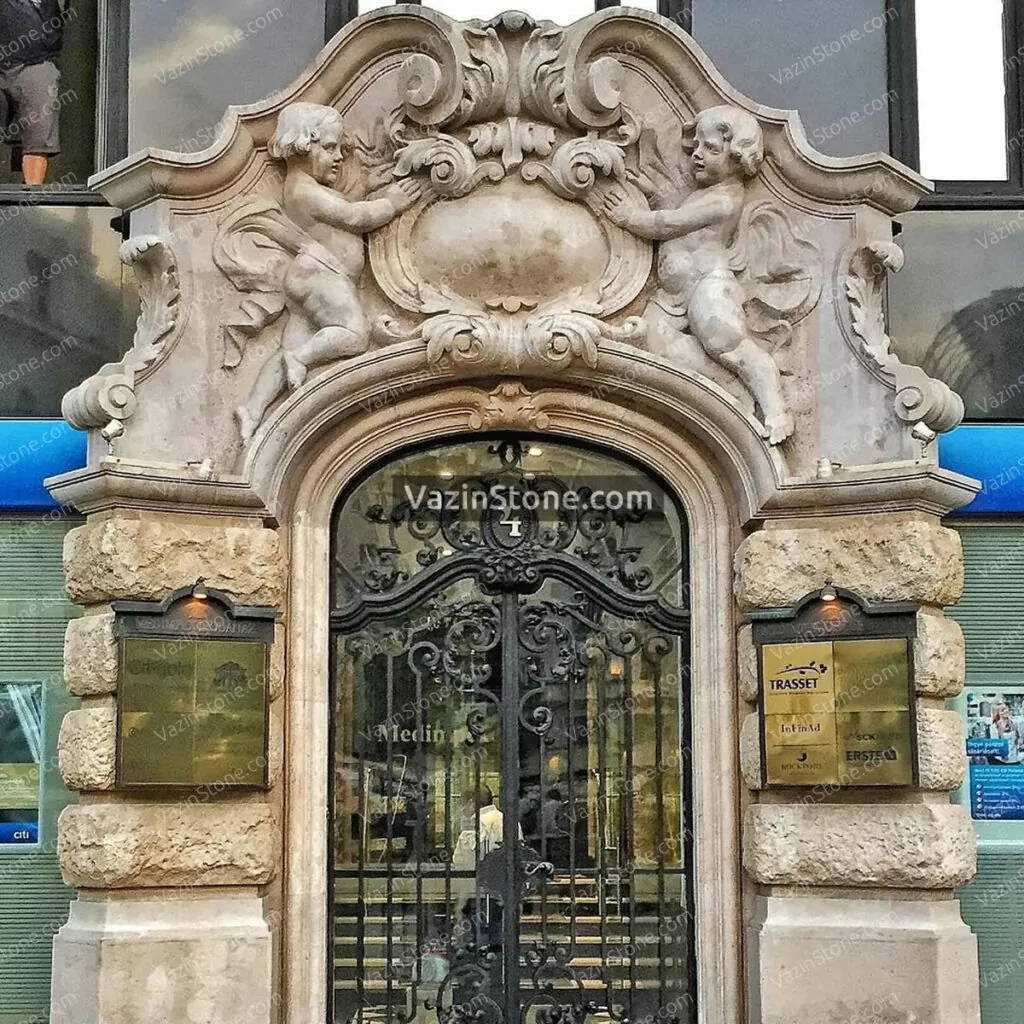
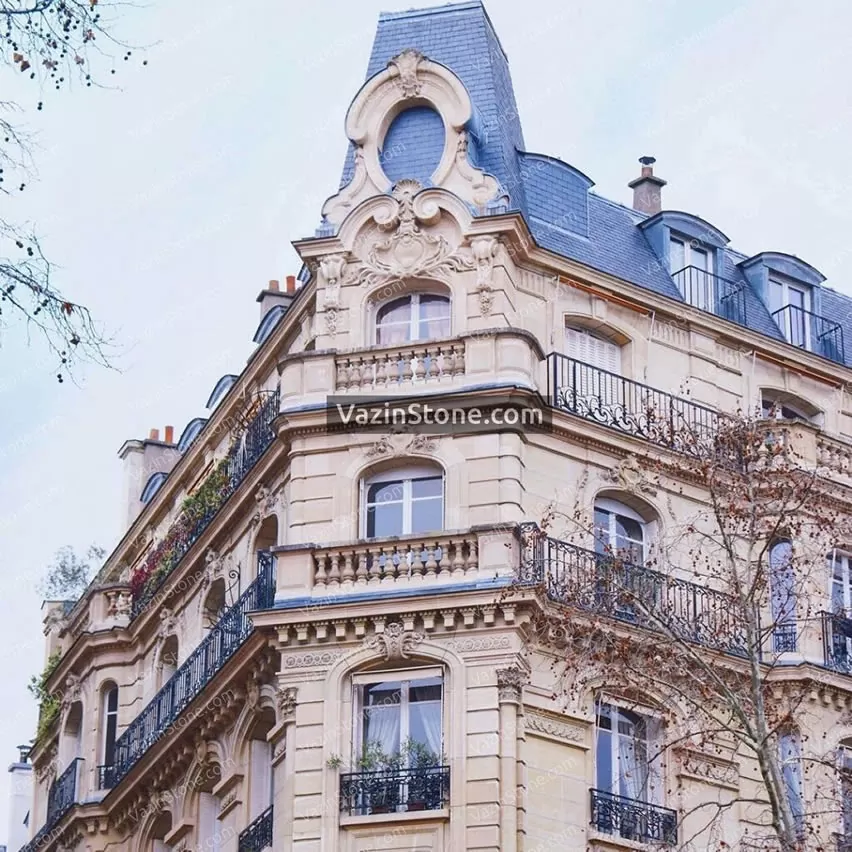
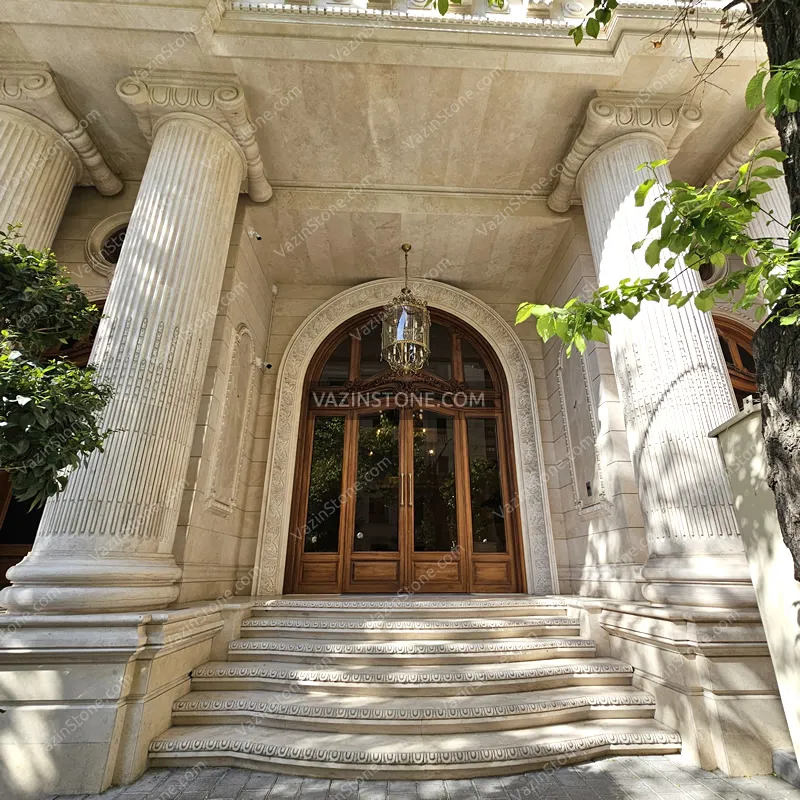
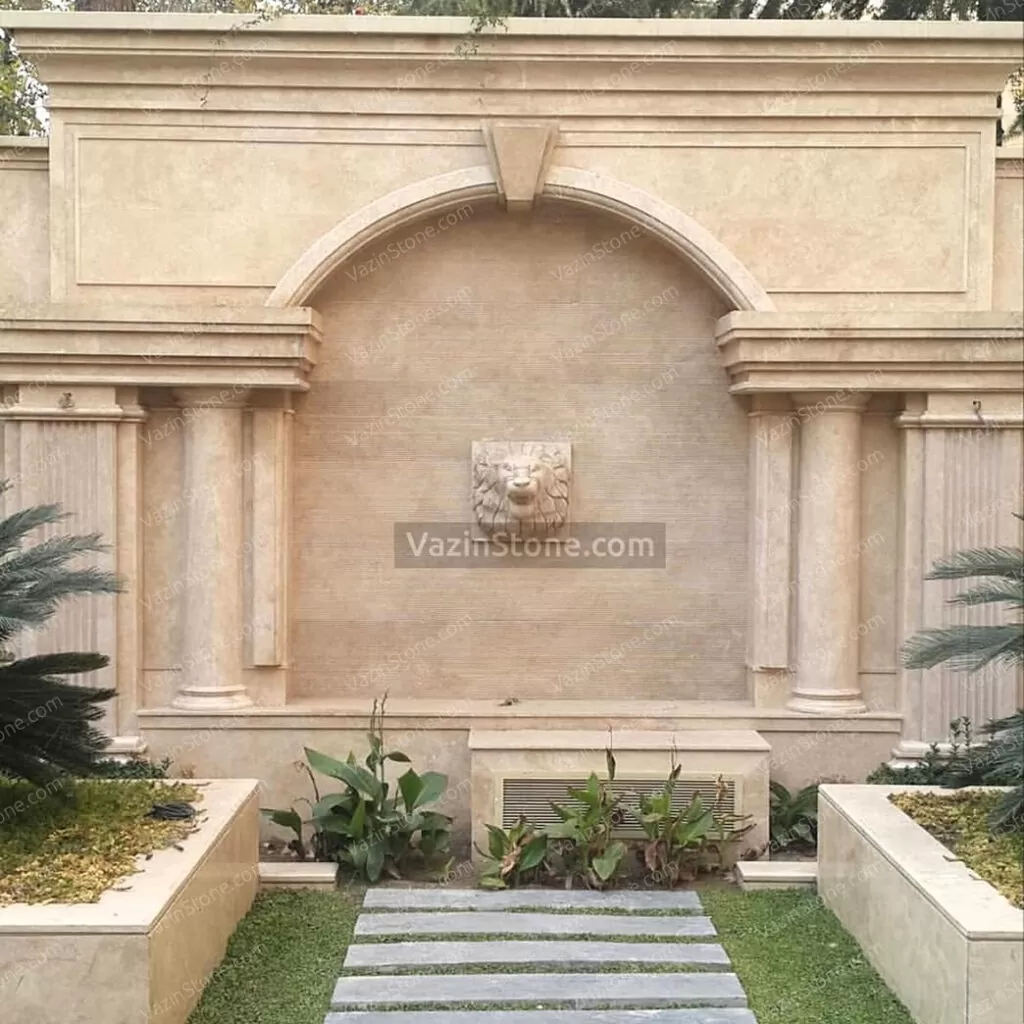



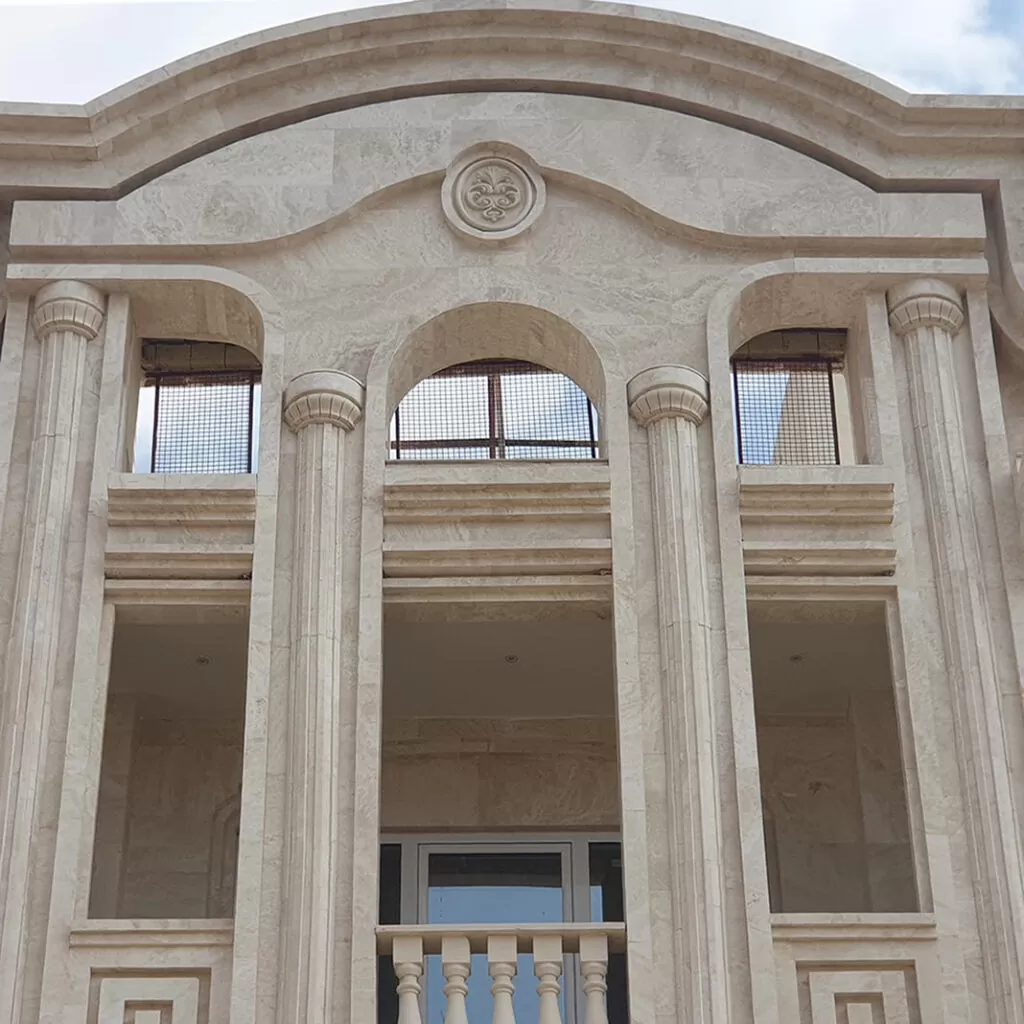
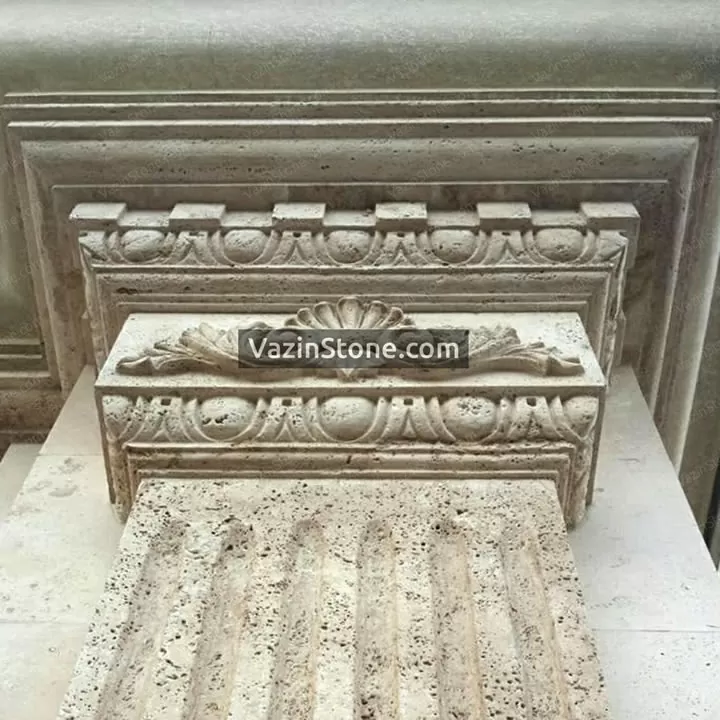

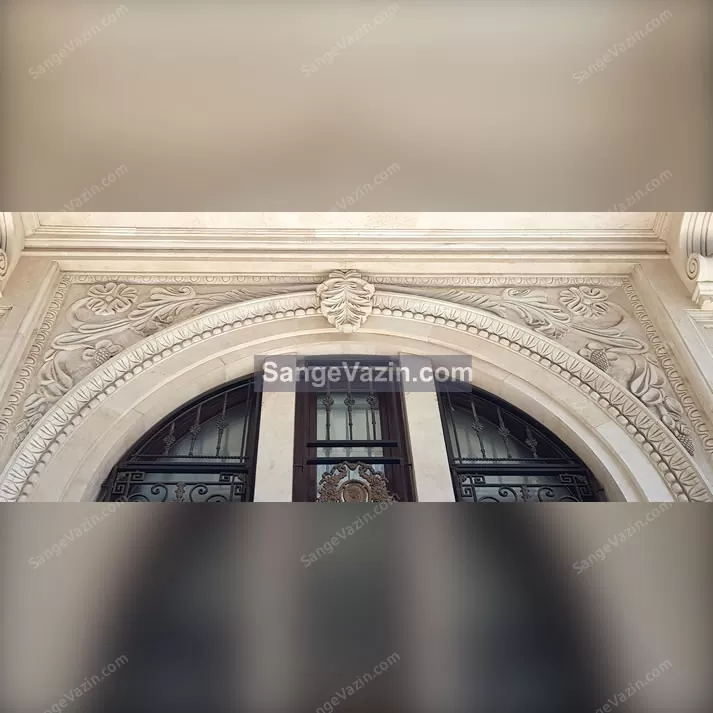
1 / Linear stonemasonry
It is used on the edges between the floors of the building, ingots, window framing, and arches above the window, framing the borders of the facade, roof edges, and balconies. The width of these is between 2 cm to about 30 cm, which can be used at any length. Cornices are used at the bottom of the walls in the area of connection to the floor, which is sometimes classified as a linear cornice.
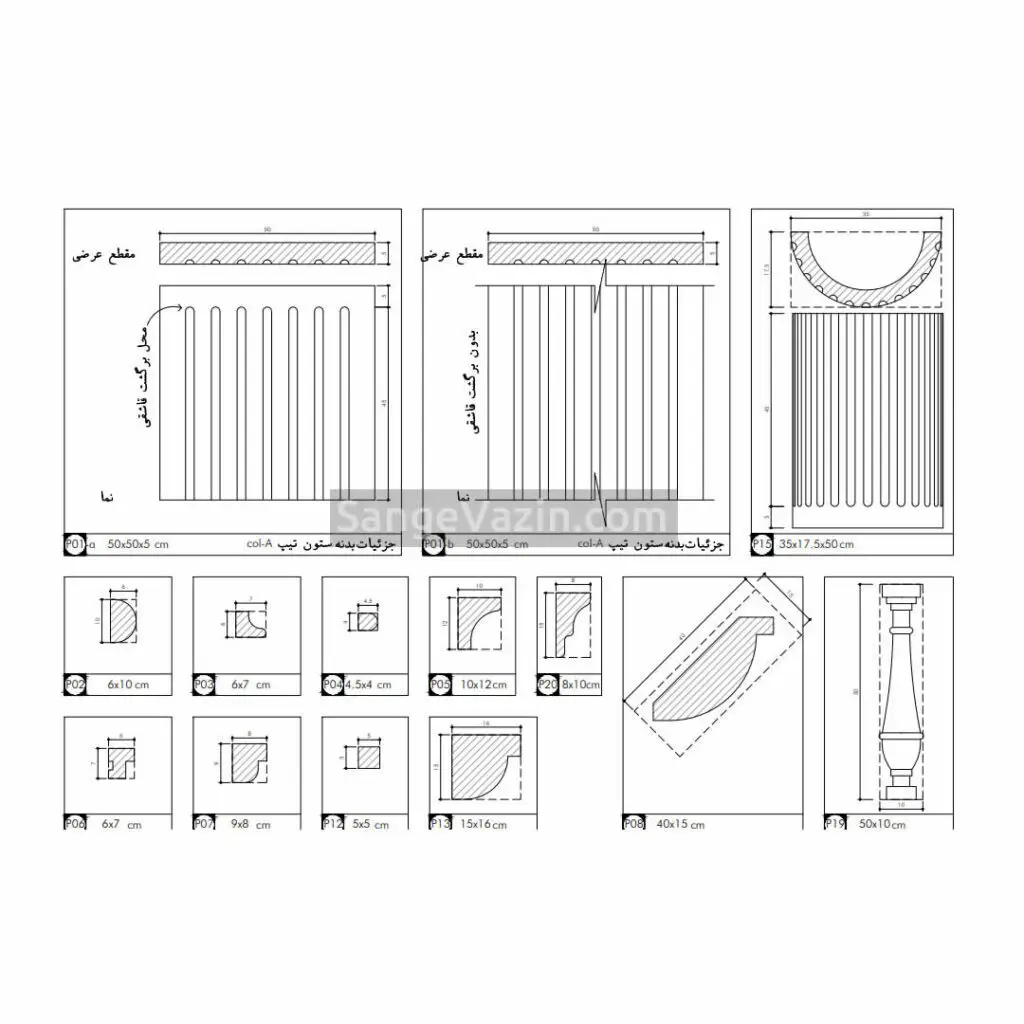
2 / Stone Inlay Tools – Flower Design And Inscription
Non-linear patterned stonemasonry includes column heads and pillars, flowers and bushes, and symbols such as inscriptions. This stonemasonry is used at the top and bottom of columns, top of windows, top of the building, at entrances, etc. Also, they have a certain length and width. These stonemasonry crafts sometimes are produced by hand and sometimes by CNC machines.
The precision and elegance of production with the machine are more than handmade ones, but the items produced by hand are considered a work of art and will have a higher price. Sometimes they are so high quality that their precision and elegance are comparable to Machine-made ones.
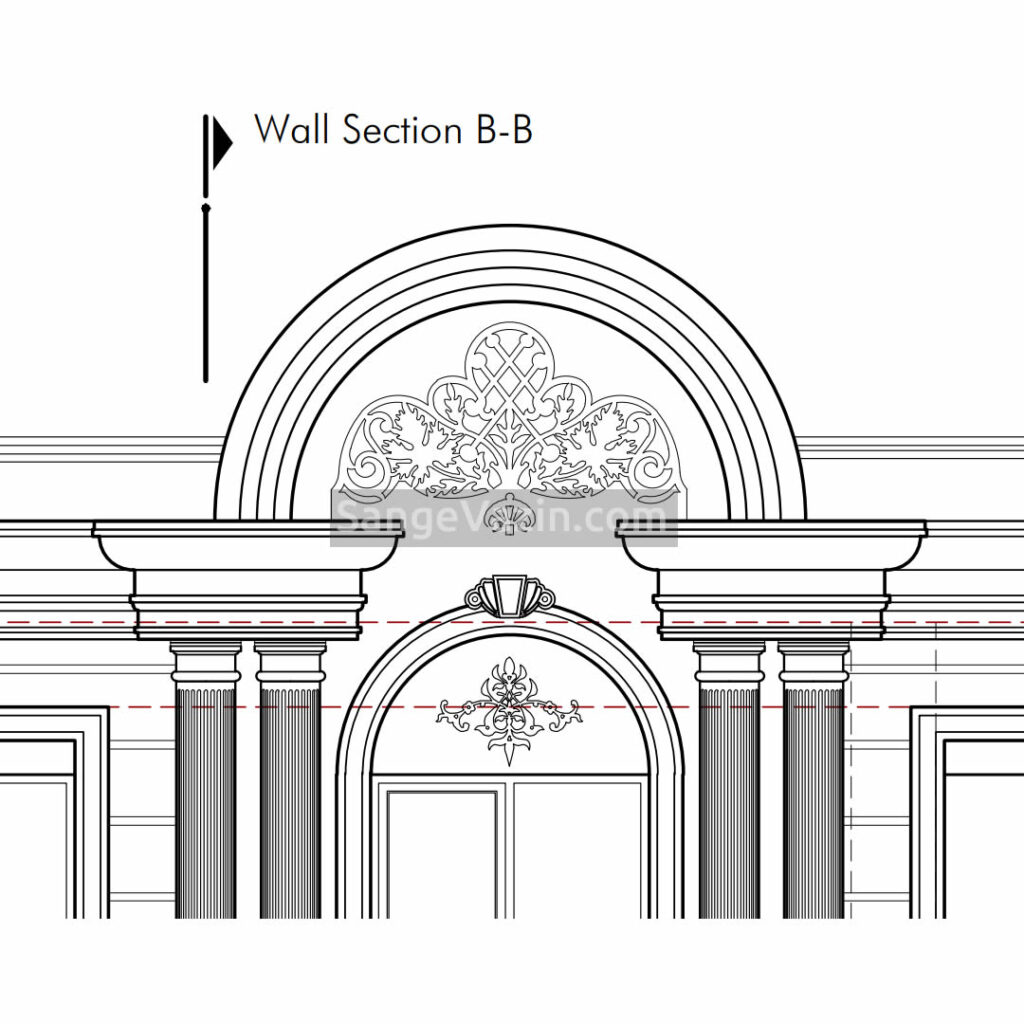
Applications of facade stonemasonry-column-wall
- volumetric stonemasonry in the facade particularly Roman facades
- Framing the building’s outside and inside walls
- Covering the building’s columns
- Mirror frame
- On the tombstone‘s edge and inscription
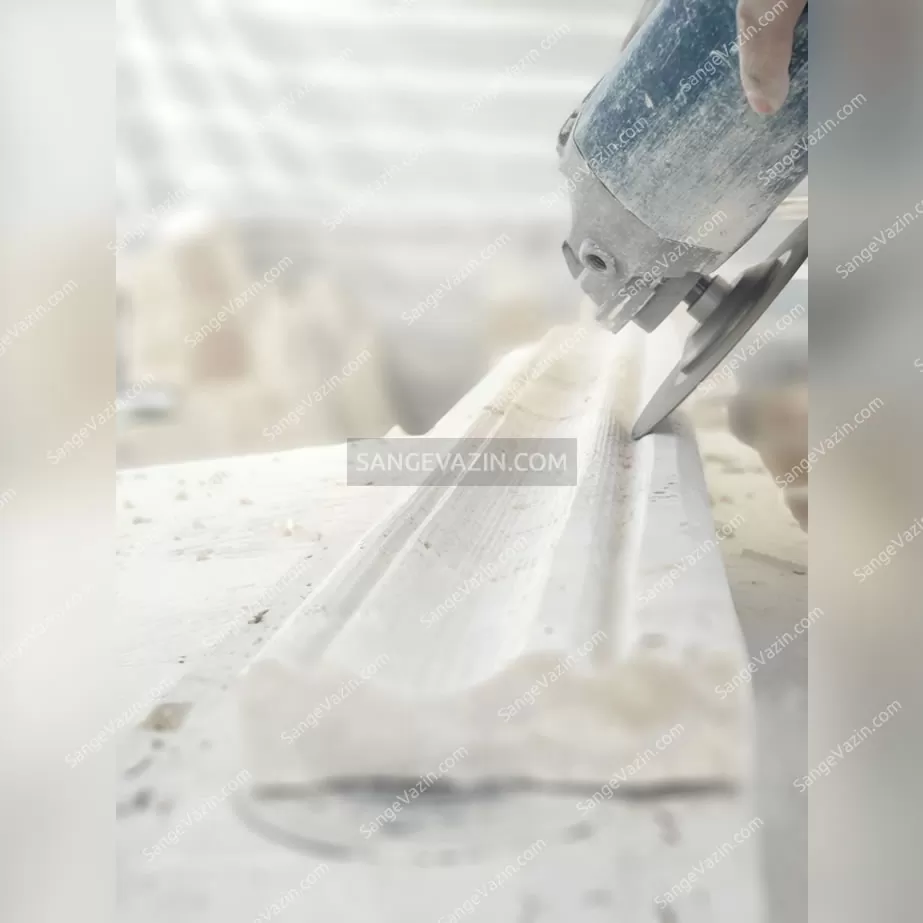
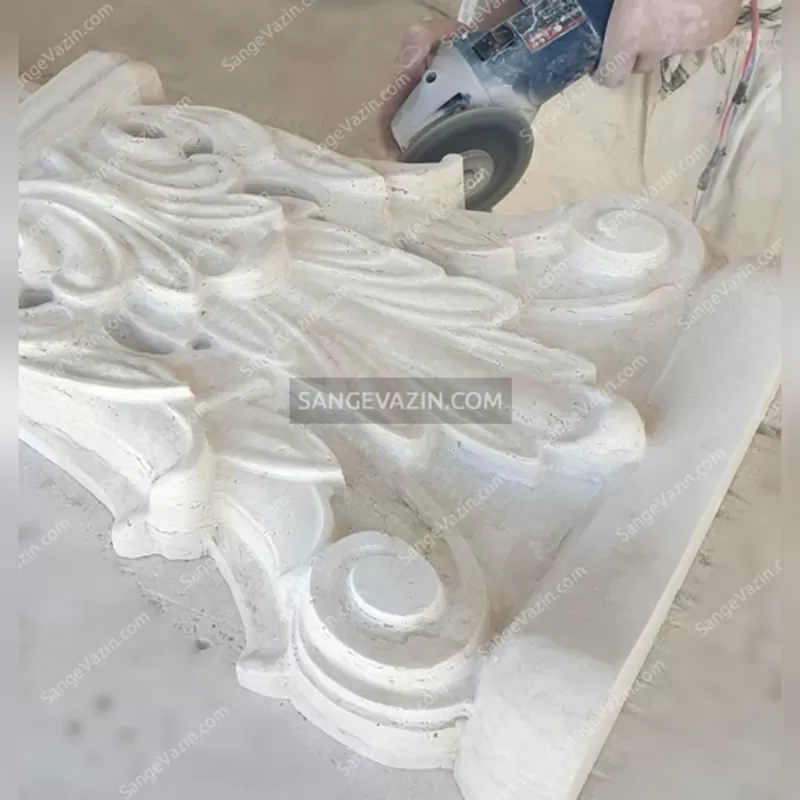
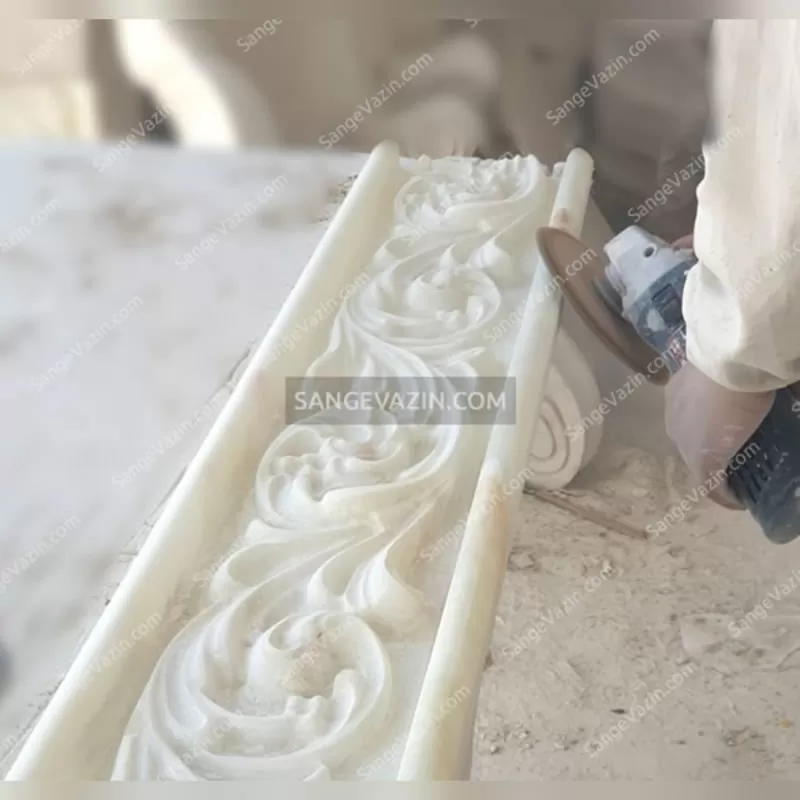
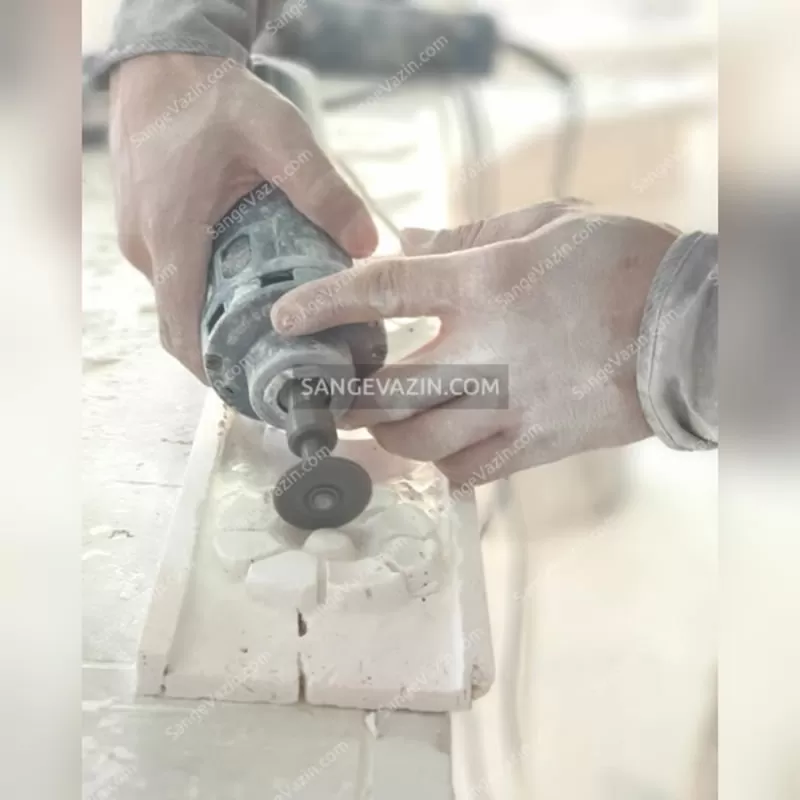
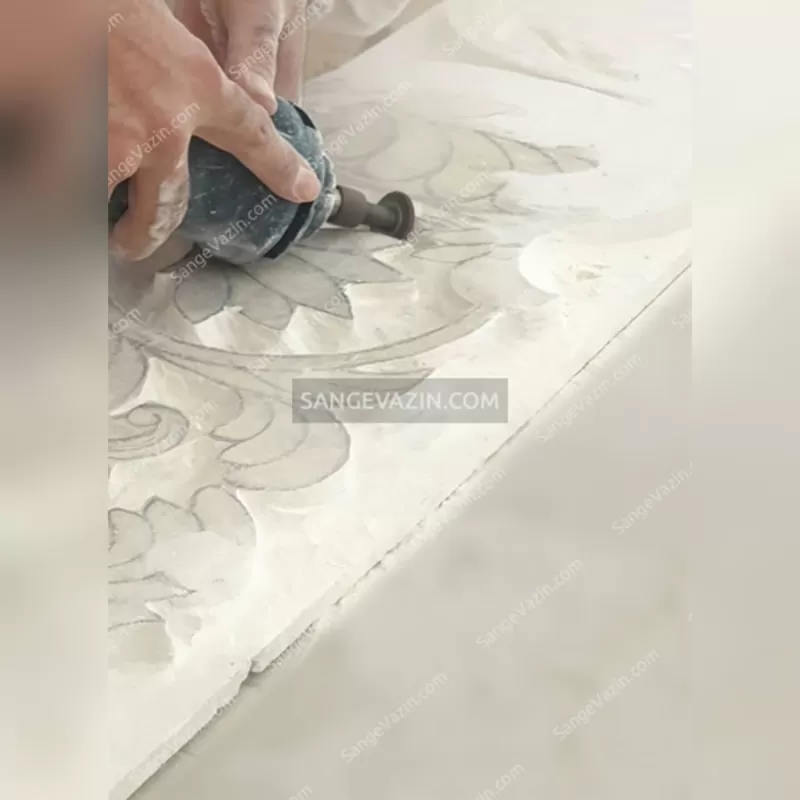
Price Of Facade Stonemasonry
The pricing of stonemasonry depends on several factors, which are described below:
- Material of stone
- Type of stonemasonry
- Dimensions and thickness
- Requested area
After determining all these factors, the price will be determined and presented. Applying stonemasonry crafts for the facade of the building should also be done by an expert architect based on accurate sizes, computer drawings, and 3-D shapes with exact dimensions. The attached file shows examples of a stonemasonry request sent to a Vazinstone.
